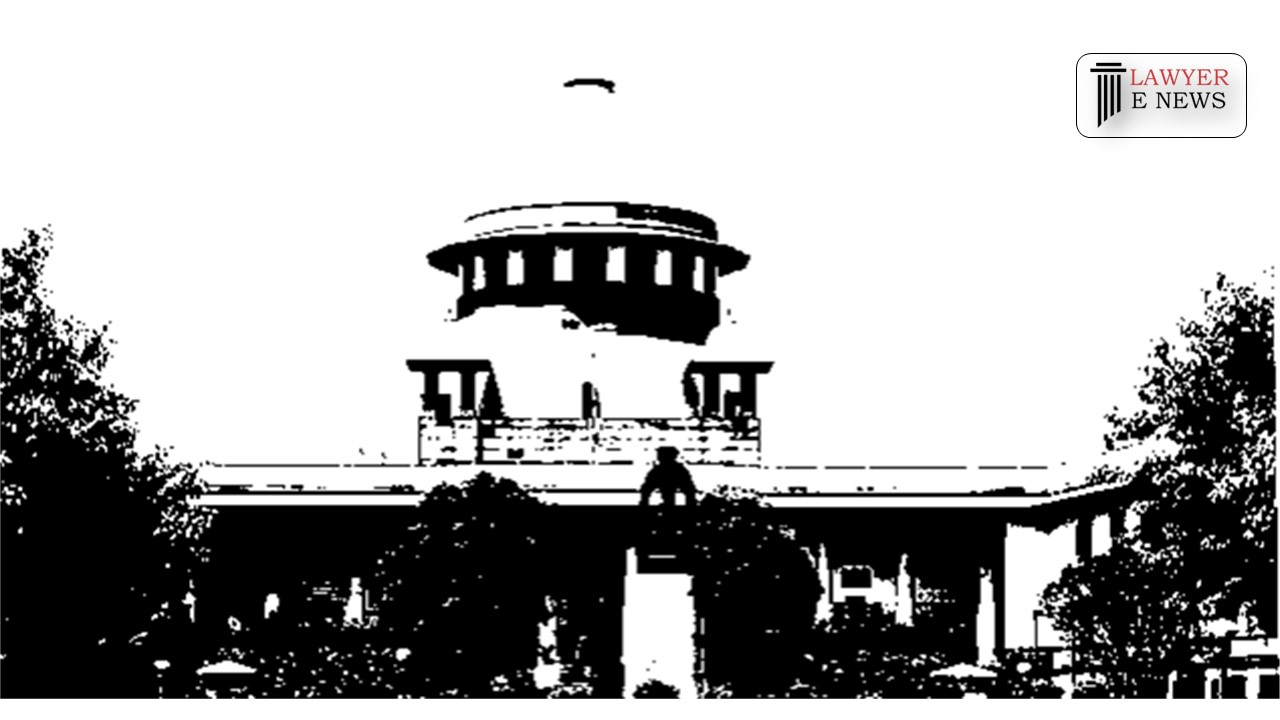-
by sayum
14 February 2026 2:22 PM



High Court’s Decision Overturned, Emphasizes Correct Application of Legal Doctrine
In a significant judgment, the Supreme Court of India has overturned the decisions of the First Appellate Court and the High Court, thereby restoring the decree passed by the trial court in favor of the appellant, Har Narayan Tewari, in a property dispute case against the Cantonment Board, Ramgarh. The bench, comprising Justices Abhay S. Oka and Pankaj Mithal, ruled that the principle of res judicata was incorrectly applied by the lower courts.
Har Narayan Tewari, through his legal representatives, filed Title Suit No.9/89 seeking a declaration of title and confirmation of possession over 0.30 acres of land in village Ramgarh. The trial court had decreed in favor of the appellant on March 16, 2000. However, this decree was reversed by the First Appellate Court on June 28, 2006, citing res judicata based on an earlier judgment in Title Suit No.8/64 filed by Maharani Lalita Rajya Lakshmi. The High Court subsequently dismissed the second appeal by Tewari on April 1, 2009, stating it did not raise any substantial question of law.
The Supreme Court found that the principle of res judicata was misapplied by the First Appellate Court. Justice Pankaj Mithal, delivering the judgment, stated, "The issue in the earlier suit and the subsequent suit must be directly and substantially the same for res judicata to apply. The earlier suit primarily adjudicated Maharani's claim to the entire 5.38 acres of land, not specifically addressing the 0.30 acres claimed by the appellant."
The Court noted that in the earlier suit, there was no specific adjudication regarding the appellant’s rights over the suit land. "The rights of the plaintiff-appellant over the suit land were neither directly nor substantially in issue in the previous suit. Therefore, the principle of res judicata does not bar the current suit," the judgment elaborated.
The Supreme Court highlighted that there was no conflict of interest between the co-defendants in the earlier suit that necessitated a resolution for granting relief to Maharani. "The plaintiff-appellant's claim over 0.30 acres and the Cantonment Board's claim over 2.55 acres were distinct and did not overlap in a manner that required adjudication in the previous suit," the bench observed.
The Court also emphasized the credibility of the evidence presented by the appellant, which was not sufficiently challenged by the respondents. "The settlement of the suit land by the Raja in favor of the plaintiff-appellant stands proved by various documents including the Amin report, Hukumnama, and rent receipts. The Additional Collector's order confirming the settlement further strengthens the appellant's claim," the judgment noted.
Setting aside the decisions of the High Court and the First Appellate Court, the Supreme Court restored the trial court's decree in favor of Har Narayan Tewari. The judgment underscores the importance of correctly applying the principle of res judicata and ensuring that evidence is thoroughly examined. This landmark decision reinforces the legal framework surrounding property disputes and the interpretation of res judicata.
Date of Decision: July 8, 2024
Har Narayan Tewari (D) Thr. LRS. vs. Cantonment Board, Ramgarh Cantonment & Ors.
